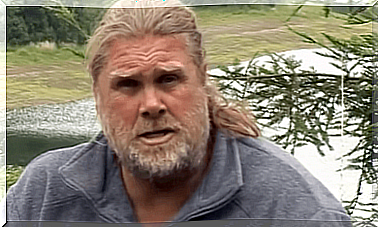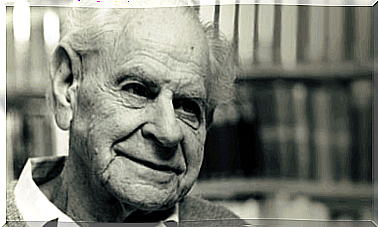Language Helps Us Make Things Happen

Language helps us make things happen because it has power. Thanks to it, we don’t just describe realities: we generate them too. Because the word is never neutral, it leaves a mark and invites us to act. Our voice creates links or establishes distances, makes us understand ideas, reaffirms us in certain positions and allows us to emphasize our identity.
Ludwig Wittgenstein, famous philosopher, mathematician and linguist, said that our language marked the limits of the world. This expression, a little disturbing at first glance, contains curious evidence. Our reality is indeed taken up and described by the words we use every day.
For example, we give the name of orphans to children who have lost their parents. People who have lost their spouse are widowers or widows. However, in many of our languages we have yet to name those fathers and mothers who lose their children or suffer the loss of a sibling.
So there is a void in our reality; some invisible entities and sufferings have no name although they occur every day in the world. We also feel nameless emotions. We experience sensations, worries and pleasures that have no entry in dictionaries.
In our daily life and in nature, we observe details that our mind cannot express through language. However, they are still very present. This is why we sometimes wonder if another person has already felt this, if it is normal to feel this suffering that is not described in the books, which has no label, gender or verbal time.

Language helps us make things happen: rules you must follow
Language helps us make things happen. However, for this to happen, we must follow a few steps, a few strategies that will allow us to put in place changes and more honest and happy realities. We already know that the things we don’t name don’t seem to exist or seem relegated to that space of uncertainty where a person ends up facing their own issues.
Linguists tell us that language does not determine thought. As we have already pointed out, many sensations and experiences have not yet been translated into words. However, we do know that, from a psychological point of view, language prompts us to act and helps us to make things happen if we put the following rules in place.
First rule: your language describes you, pay attention to the way you speak
Paul Anwandter, author of several coaching books and expert in neurolinguistic programming, points out the following to us. Human beings shape themselves through language. You are what you say about yourself, you are what you say you are going to do, you are how you describe yourself and communicate with others. You are also whatever you choose to keep silent or reveal.
Therefore, here we have an opportunity: to transform ourselves through language. For this we can pay attention to the following dimensions.
- We need to talk to ourselves in a positive and respectful way. Studies like the one conducted at the University of Texas by Dr Kristin Nef tell us that this loving communication with ourselves allows us to take care of our identity and our self-esteem.
- Communication with others should also be respectful. What we offer to others also has an impact on us. A wrong word comes at an emotional cost to both parties.
- In addition, it is necessary to be consistent. If we want to generate a change in our being, we have to make our language in tune with this goal. Let’s avoid the “I can’t, it’s not for me, I’m not going to get there, the others will do better than me, etc.”.
Second rule: language transforms and creates your own reality
Language helps us make things happen because it has transformative power. On the other hand, it creates possibilities, reasserts us in our position and motivates us to be persistent. To better understand this idea, let’s take a few examples:
- Language is synonymous with action because it determines thought: tomorrow I will pass this exam, tomorrow I will call this person to go have a drink with them, today I will tell my boss that I no longer accept his odious attitude… These sentences often motivate us to achieve these goals.
- Language creates possibilities: if you say “no” to someone, you are closing a door in your life. For you, it was necessary. And if you say “yes” to a project, you will create new paths.

Third decree: trust and action
If we want to generate change, if we want to feel better, solve a problem, or achieve a goal, we need an internal compass. A compass set to that North where action and confidence are found. Because if we don’t engage with ourselves by being consistent and persistent, nothing will change.
Language helps us make things happen, but only if we show courage. We must be willing to claim what we want, and without the slightest fear. We also need to make it clear what we don’t want and persevere in the face of difficulties by motivating ourselves with positive words.
In conclusion, let’s never hesitate to give a name to what we feel and want. Language is our best instrument for action. We need to use it to build better relationships, solve problems, and be consistent with what we think and do.










